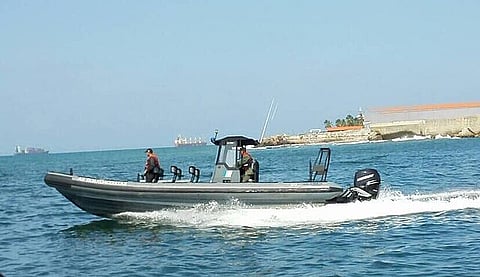

The United States is preparing to escalate its operations against Venezuela, with officials confirming a new phase of action that could include covert measures and potential regime change efforts. This escalation comes amid a massive U.S. military buildup in the Caribbean that has raised tensions and prompted Venezuela to prepare for a guerrilla-style resistance.
According to U.S. officials, a new phase of Venezuela-related operations is poised to begin in the coming days. While the exact timing and scope remain undecided, two officials stated that covert operations would likely be the first part of the new action against the government of Nicolás Maduro. This planning is part of a broader strategy, with the Trump administration considering options that include attempting to overthrow Maduro.
This imminent escalation is underscored by a significant deployment of U.S. military assets to the region. The USS Gerald R. Ford, the U.S. Navy's largest aircraft carrier, has arrived in the Caribbean with its strike group, joining at least seven other warships, a nuclear submarine, and F-35 aircraft. Furthermore, a Reuters investigation found the U.S. military is upgrading a long-abandoned former Cold War naval base in Puerto Rico, suggesting preparations for sustained operations near Venezuela. The installation of portable air traffic control and new tent cities at these locations points to preparations for a surge of military activity.
The U.S. has framed its actions as a counter-narcotics mission, with the State Department designating the "Cartel de los Soles" as a Foreign Terrorist Organization and accusing Maduro of leading it, an allegation he denies. This designation, as Defense Secretary Pete Hegseth noted, "brings a whole bunch of new options to the United States".
However, the human cost of existing operations has been high and widely criticized. U.S. forces have carried out at least 21 strikes on alleged drug boats since September, killing at least 83 people. These strikes have been condemned by human rights groups as illegal extrajudicial killings of civilians, with some U.S. allies expressing concerns that Washington is violating international law. The legal basis for the strikes has been questioned, as the U.S. has provided no evidence that the targeted boats were carrying drugs.
Despite the bellicose posture, avenues for diplomacy remain open. Maduro has stated he is willing to hold face-to-face talks with representatives of the Trump administration, emphasizing "dialogue, call, yes, peace, yes, war, no, never, never war". Two U.S. officials have also acknowledged that conversations are taking place between Caracas and Washington.
Facing a vastly superior military, Venezuela has drawn up plans for a strategy termed "prolonged resistance" in the event of a U.S. attack. This involves small military units stationed at more than 280 locations carrying out sabotage and other guerrilla tactics. This plan is a tacit admission that Venezuela's armed forces, weakened by low pay, poor training, and aging equipment, would be unable to sustain a conventional war. One source close to the government admitted, "We wouldn't last two hours in a conventional war".